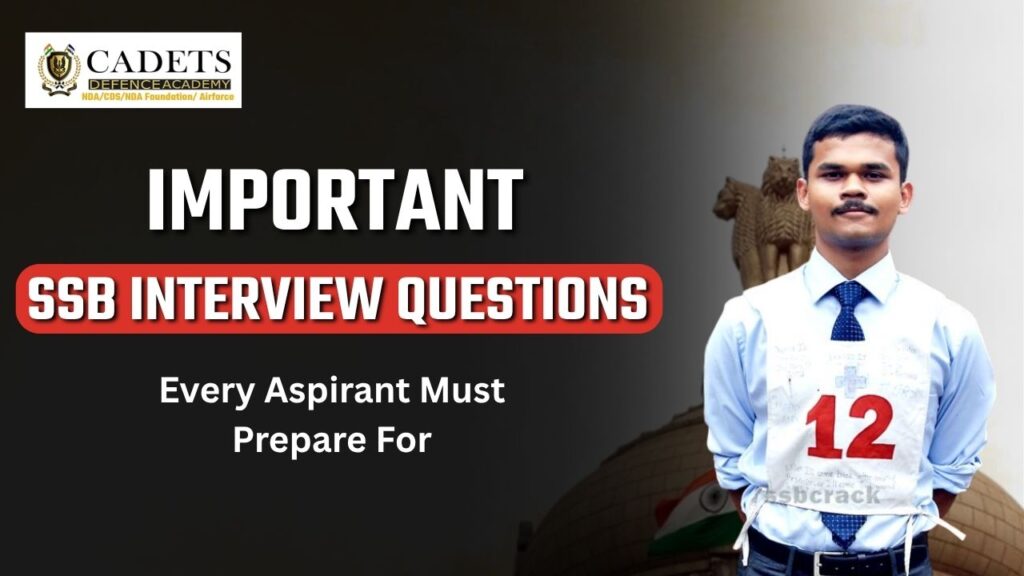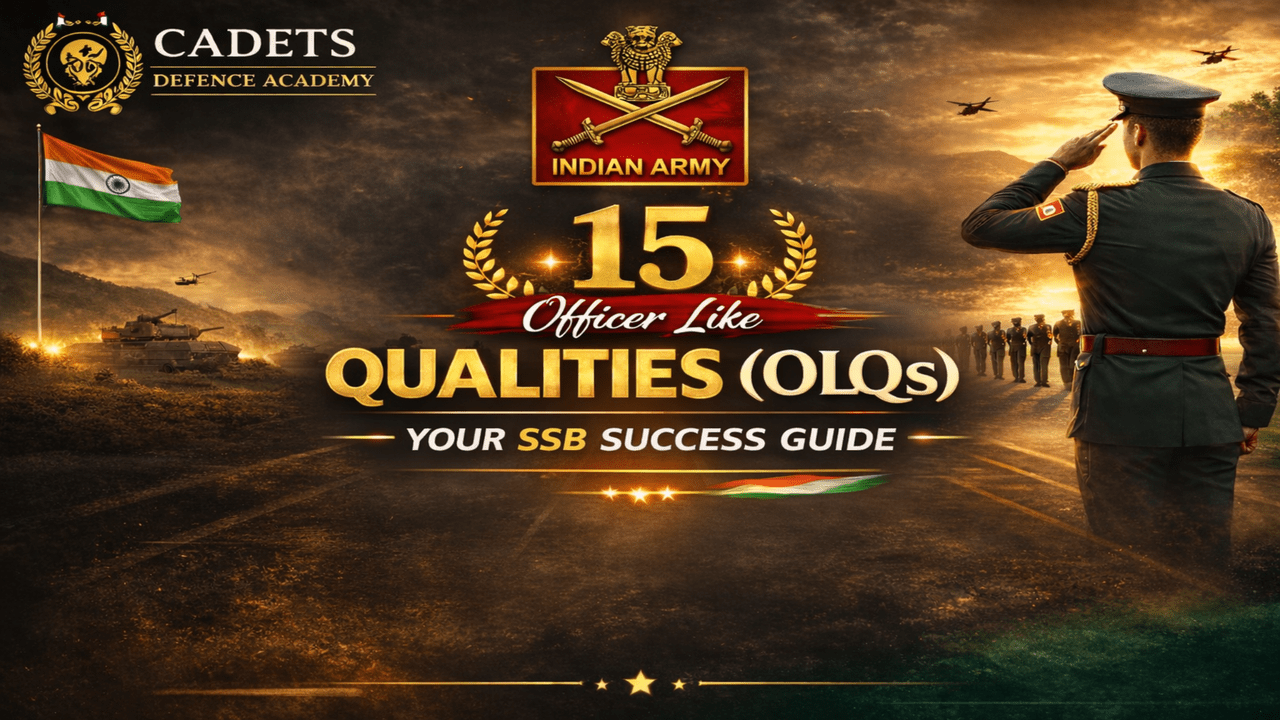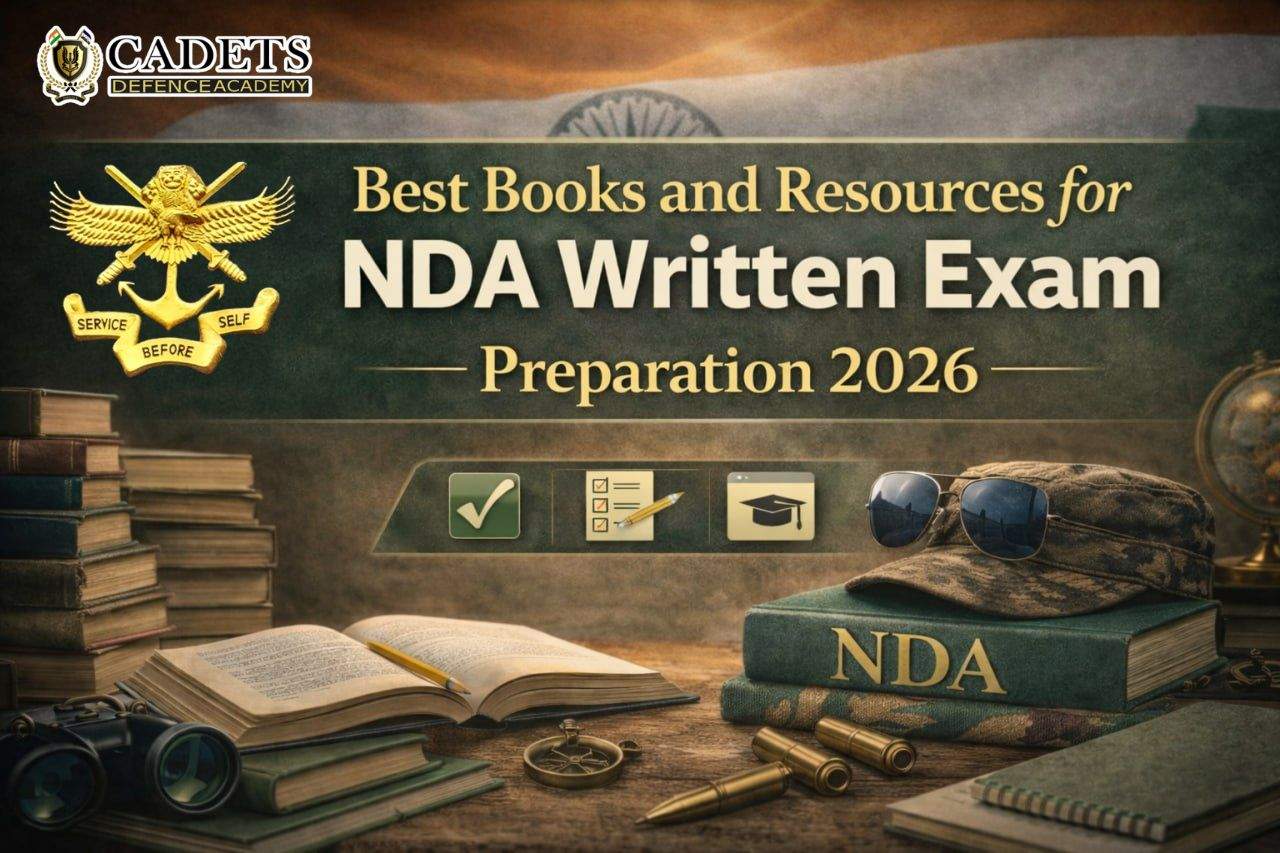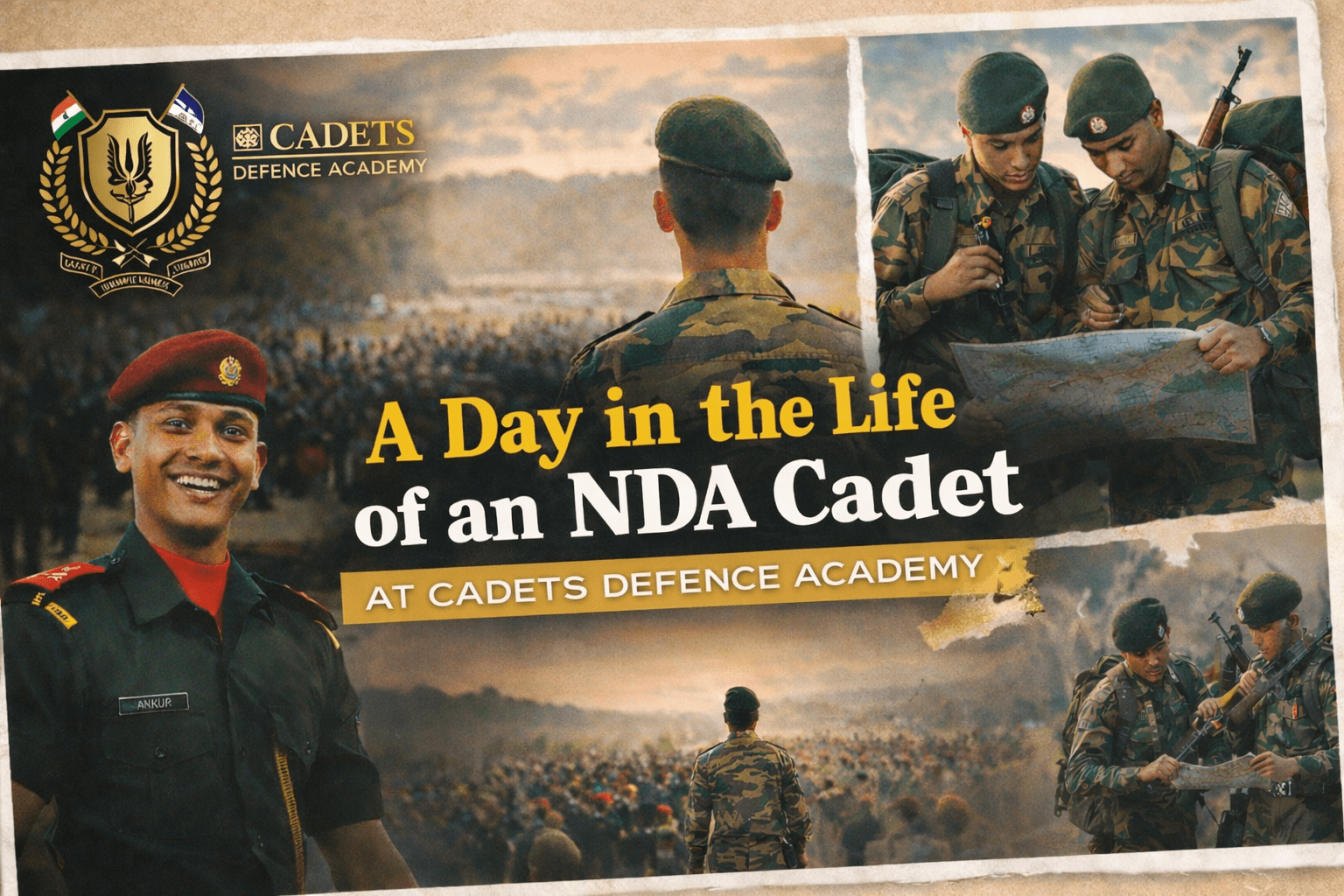15 Officer Like Qualities (OLQs): Your SSB Success Guide Table of Contents Getting that SSB call-up letter changes the game completely. You’ve already proven your intellectual might to the UPSC…
Important SSB Interview Questions Every Aspirant Must Prepare For
Table of Contents

If you’re preparing up for the SSB interview, chances are you’ve been scanning the internet, scribbling notes, watching mock interviews, and wondering—what exactly are they gonna ask me? You’re not alone. The SSB interview process can feel intense, but don’t worry—we’re gonna break it all down right here.
In this blog, we’ll walk through the important SSB interview questions you need to know, the mindset you should carry, and the tricks that can help you stand out, naturally. Not like a rehearsed robot, but like you, the future officer.
What is the SSB Interview Anyway?
Before jumping straight into the questions, let’s just take a second to understand the bigger picture. The Services Selection Board (SSB) interview is not your typical job interview. It’s designed to dig deep into your personality, mindset, leadership qualities, and potential to become an officer in the Armed Forces.
It’s a five-day process (yup, five full days) where you go through multiple rounds:
- Screening Test
- Psychological Tests
- Group Testing Officer (GTO) Tasks
- Personal Interview
- Conference Round
And the personal interview is where many candidates either shine—or stumble. That’s why being prepared with important SSB interview questions can really boost your confidence.
The Classic Personal Interview Questions
Let’s start with the basics. These aren’t just ice-breakers; they’re windows into your personality.
“Tell me about yourself.”
Sounds easy, right? But many aspirants mess this up by rambling. Keep it honest, flowy, and to the point. Focus on your background, values, goals—without sounding like a school essay.“Why do you want to join the Armed Forces?”
This one’s huge. Avoid textbook answers like “I want to serve the nation.” That’s understood. Dig deeper. Talk about your personal journey—maybe a family connection, or a moment that sparked the passion.“Tell me about your strengths and weaknesses.”
Don’t say perfectionist as a weakness, everyone does. Instead, talk about a real issue and how you’re working on it.“What are your hobbies?”
Mention genuine hobbies. If you say “reading,” be ready to talk about the last 2-3 books you’ve read.The key with all these important SSB interview questions is to be authentic. Don’t just say what you think they wanna hear. That usually backfires.
Let’s Talk Psychology (Just a Bit)
Okay, so there’s this whole psychology part in the SSB. And guess what? Sometimes the interview questions touch on these areas too.
For example, if in your Thematic Apperception Test (TAT) you wrote about a brave soldier, the interviewer may ask,
“So you believe in taking bold decisions. Can you recall a time you did that in real life?”
Boom. Caught off guard? Not if you’re ready. Sometimes they pick words from your Word Association Test (WAT) like “leader” or “risk” and frame follow-up questions around those. That’s why aligning your story across all stages really matters.
Real-Life and Situation-Based Questions
Now this is where things get fun—and tricky. They’ll throw scenarios at you and see how you react. These aren’t questions you can “mug up.” But knowing the type of important SSB interview questions can help you prepare your thinking.
Some examples:
- “If your friend is cheating in an exam, what would you do?”
- “You see a man hitting a child on the street. Will you intervene?”
- “You’re leading a team and one member refuses to cooperate. What now?”
Here’s the trick: They’re not testing just your answer, but your approach. Your reasoning. Your tone. So when you answer, don’t be in a rush. Think like an officer—calm, confident, balanced.
The ‘Gyaan’ Section – Tips to Tackle Any Interview Question
Let’s be real. You can’t prepare for every question, but you can prepare the way you answer.
Here’s what helps:
- Self-awareness is your best tool. Know your story—your wins, your flaws, your turning points.
- Talk like a real person. Don’t fake accents or speak too formally. They want you, not a rehearsed script.
- Use examples. Don’t just say “I’m a team player.” Say, “In college, I was part of XYZ team, and this is how we handled a crisis…”
- Stay calm. Even if the question feels weird or uncomfortable.
Also, rehearse. But don’t memorize. Talk to a mirror, or even better—record yourself and listen back. Cringe, yes. Helpful, big time.
How About Current Affairs?
Yep, that’s a thing too. Not a quiz round, but you’ll get questions like:
- “What are your views on India’s defence policy?”
- “What do you think about recent international conflicts?”
- “Tell me about the Agnipath Scheme.”
Brush up on:
- Indian Armed Forces structure
- Defence news (DRDO, indigenous weapons, etc.)
- General knowledge from the last 3–6 months
Don’t know an answer? Say it politely. “I’m not fully aware of the details but I’ll definitely read up on it.” Done.
Important SSB Interview Questions You Must Prepare
These important SSB interview questions are designed to evaluate how you think, act under pressure, lead, adapt, and communicate. Go through each one honestly—this isn’t about giving the “perfect” answer, but about showing your mindset, self-awareness, and leadership potential.
- Tell me about yourself.
- What future goals have you set for your career, and how does the armed forces fit into them?
- In what ways do you manage your time effectively during daily tasks or studies?
- Can you describe a moment when you had to obey an order that you personally didn’t agree with?
- How do you make sure your decisions and actions follow ethical values?
- What inspired you to pursue a career in the Indian Armed Forces?
- How do you usually respond to setbacks or failures in your life?
- Share an example when you came up with a creative solution to a challenging situation.
- Why do you think self-discipline is crucial in the life of a soldier?
- Have you ever worked in tough or uncomfortable conditions? How did you manage?
- How do you stay focused and calm when pressure starts building up?
- Tell us about a time when you successfully handled a conflict with someone.
- How do you react to criticism or negative feedback—especially from a senior?
- What techniques do you use to stay composed during difficult moments?
- Why do you believe continuous learning is important in a military career?
- Describe a situation where you displayed leadership during a crisis or group activity.
- What, in your view, are the core duties and expectations from a commissioned officer?
- Why is teamwork considered a key component of the armed forces?
- Talk about a time when you gave up something important for a larger cause.
- What steps do you take to ensure your team feels safe and supported?
- How do you handle multiple responsibilities when they all seem equally urgent?
- What’s your approach to staying updated with national news and world events?
- Can you recall an instance where you stepped up and took initiative on your own?
- According to you, what traits define a strong and effective leader?
- Share a time when you had to make a rapid decision in a tense situation.
- What’s your understanding of collaboration and team effort?
- Tell us about a group project where you were in charge and had to lead others.
- What is your opinion on the current national security situation in India?
- How do you handle unclear instructions or situations that lack clear outcomes?
- Why is perseverance important in the life of an officer?
- Talk about a tough personal challenge and how you came out stronger.
- What personal qualities make you stand out from other candidates?
- What contributions do you hope to make once you’re part of the Indian defence forces?
- Share an experience where innovation helped you solve a problem.
- How do you deal with disagreements when they involve a figure of authority?
- What are some of your strong qualities, and where do you think you need improvement?
- How do you maintain your motivation and personal discipline daily?
- Give an example of when you led a group of people from different backgrounds or cultures.
- Why do you think good communication is essential for a military officer?
- Describe a moment when you had to bounce back from a major obstacle.
- How do you adjust to new surroundings, people, or work environments?
- In your opinion, what is the biggest internal or external challenge for the armed forces today?
- What actions do you take regularly for self-improvement and growth?
- How do you think you’ll manage personal life while serving in a demanding military career?
- Can you share a story of a time when you had to make a difficult life choice?
- What strategies help you handle fast-paced, high-pressure conditions?
- Describe a situation where you had to lift someone’s morale or keep a team motivated.
These important SSB interview questions aren’t just about right or wrong answers. They’re about how you think, react, and lead under real-life conditions. Practicing these will help you walk into your SSB interview with clarity, presence of mind, and your unique story to tell.
So... What Are They REALLY Looking For in SSB Interview?
They’re looking for Officer-Like Qualities (OLQs). Yeah, you’ve probably heard that phrase a hundred times by now. But what does it actually mean?
Things like:
- Responsibility
- Initiative
- Social adaptability
- Courage
- Effective intelligence
- Stamina (mental + physical)
And here’s a small secret—they’re not expecting perfection. They just want to see potential. Are you someone who learns, adapts, and grows under pressure? If you can show even a glimpse of that through your answers, you’re in the game.
Final Thoughts
There’s no magic list that guarantees success. But knowing these important SSB interview questions, and understanding how to approach them, is half the battle won.
It’s more about reflection than rote-learning. More about presence of mind than polished grammar.
So, go prep. Record your voice. Get a buddy to grill you. Dive into current affairs. Most importantly—be brutally honest with yourself.
Because when you walk into that interview room, you’re not just answering questions. You’re telling a story. And it better be a story worth selecting
Reach Us
Best Books and Resources for NDA Written Exam Preparation 2026 Table of Contents Hey future warriors! If you dream of wearing that glorious uniform, you are in right place. Doing…
A Day in the Life of an NDA Cadet at Cadet Defence Academy Table of Contents Hook: Picture a 4:30 AM alarm buzzing in the pitch dark. Outside, the Dehradun…






